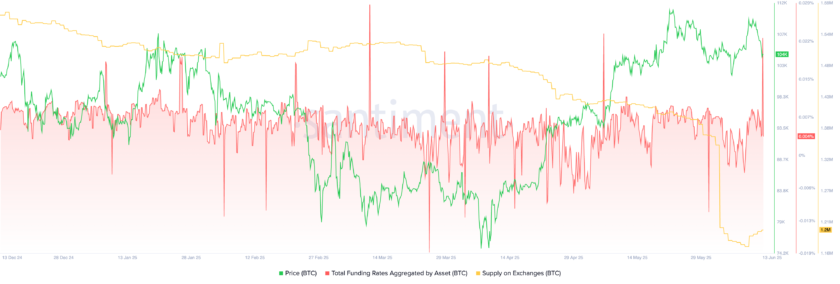Last year was a bear market for cryptocurrencies. Many investors who did not know how to hedge their cryptocurrency investments saw these investments lose value from the market highs of 2017.
Facing the deadline to report their taxes by April 15, 2019, United States individual taxpayers may wonder what their United States tax reporting obligations are if they held, donated or sold/exchanged their cryptocurrencies at a loss during 2018.
A taxpayer’s dilemma
Let’s imagine a potential 2019 taxpayer sitting in front of his tax advisor and feeling embarrassed to tell him that he had lost 90 percent of a 100K investment in cryptocurrencies when the cryptocurrency markets experienced a downturn during 2018, with leading cryptocurrencies like Bitcoin (BTC) and Ethereum (ETH) down 80 percent or more.
The taxpayer invested heavily into crypto at the end of 2017 and beginning of 2018 — which he said he regretted everyday since then, because he lost almost all of it.
The tax advisor assured the taxpayer that this would give rise to a taxable event only if he sold, exchanged or donated his cryptocurrency during 2018, and that these things would need to be reported on his U.S. tax return — noting, however, that holding cryptocurrencies would not give rise to a taxable event but may give rise to tax-reporting requirements if the cryptocurrencies were held in a foreign financial account.
Cryptocurrency hodlers
If a taxpayer for 2018 has not sold, exchanged or donated the cryptocurrency he bought at the end of 2017 or beginning of 2018 and is still holding them, then there is no taxable event to report on his U.S. tax return.
Tax-reporting requirements would arise if the taxpayer held these cryptocurrencies in a foreign financial account and if mandatory financial thresholds were met under Foreign Bank Account Report (FBAR) and Foreign Account Tax Compliance Act (FATCA) reporting requirements, according to a letter from the American Institute of Certified Public Accountants (AICPA) to the Internal Revenue Service (IRS).
FBAR: A taxpayer with a financial interest in or signatory authority over a foreign financial account must file a foreign bank account report (FBAR) FinCEN Form 114 if the aggregate value of the foreign financial account exceeds $10,000 at any time during the calendar year. Noncompliance with FBAR would subject a taxpayer to steep civil and criminal penalties. Each nonwillful failure to file violation can carry a civil penalty of $10,000. Penalties for each willful violation could be the greater of $100,000 or 50 percent of the amount in the account.
FATCA: A taxpayer with foreign financial assets of $50,000 or more must report it for FATCA purposes on Form 8938. It is recommended that cryptocurrency-invested hedge fund accounts and cryptocurrency-denominated exchange accounts be reported in the summary information in Part I of Form 8938. Specific information should be given in Part V. Noncompliance with FATCA could subject a taxpayer to taxes, severe penalties in excess of the unreported foreign assets, and exclusion from access to U.S. markets, which could include a regulated cryptocurrency derivatives clearing market.
Cryptocurrency charitable donations
A taxpayer may feel generous and decide to donate their cryptocurrencies to a tax code Section 501(c)(3) tax-exempt charity of their choice, to give the charity a large gift.
Since a cryptocurrency is considered property for U.S. tax purposes, it will be valued at the time of donation at its fair market value. Donors of cryptocurrencies of over $500 — which are noncash donations — will be required to comply with IRS appraisal requirements by filing Form 8283. The donation will be tax deductible for the U.S. individual donor as follows:
- If the donor held the cryptocurrency as a capital asset for more than a year, the donor will be able to deduct the fair market value of the gift up to 30 percent of their adjusted gross income (AGI).
-
If the donor held the cryptocurrency as a capital asset for a short term (i.e., less than one year) or as ordinary income property, the donor will be able to deduct the lesser of cost basis or fair market value up to 50 percent of their AGI.
Charitable contributions that are not deductible in the current year, because they exceed the taxpayer’s AGI limitation, can be carried forward for five years.
Cryptocurrency investment sold or exchanged at a loss
If a taxpayer held the cryptocurrency as an investment and sold it during 2018, he will be taxed just like bonds or stocks at capital gains rate, which is calculated by subtracting the cost of the asset at the time of purchase from the amount at which it was sold. That difference is typically levied at between 15 percent and 20 percent for long-term investments, held for over a year, or at short-term rates, ranging from 10 percent to 37 percent. If the taxpayer is in the three highest income brackets, he may also have to pay a 3.8 percent tax on the net investment income from short-term investments, held for less than a year.
A taxpayer can use his cryptocurrency investment capital losses to offset gains and deduct the difference on his tax return, up to $3,000 per year. Cryptocurrency software services such as Bitcoin.tax or Cointracking.info may ease the calculation of cryptocurrency investment gains and losses that are reported on Form 8949, which then becomes part of a taxpayer’s Form 1040 Schedule D.
Any portion of a capital loss that exceeds the $3,000 annual deduction limit may be carried forward, but not carried back.
According to a survey prepared by personal finance company Credit Karma, only around half of cryptocurrency investors who lost $1.7 billion during 2018 plan to report their losses to the IRS.
Their reasons for staying quiet is partially tied to not knowing if they can deduct their losses, believing they don’t have to, or that they neglected to report cryptocurrency gains in past years and now are afraid to report their cryptocurrency losses.
However, taxpayers who have neglected to pay their cryptocurrency-related U.S. taxes and who file their applicable U.S. tax returns should do so by April 15, 2019 to avoid interest, penalties, and even jail time for tax evasion or, worse, for tax fraud, since “cryptocurrencies are a key part of the Joint Chiefs of Global Tax Enforcement’s work,” Don Fort, chief of the Criminal Investigation Department at the IRS said at a Joint Chiefs of Global Tax Enforcement meeting in Amsterdam, citing the risk that such coins are used in the U.S. to avoid paying taxes.
Selva Ozelli, Esq., CPA is an international tax attorney and CPA who frequently writes about tax, legal and accounting issues for Tax Notes, Bloomberg BNA, other publications and the OECD.




